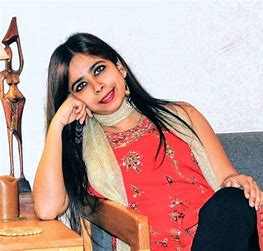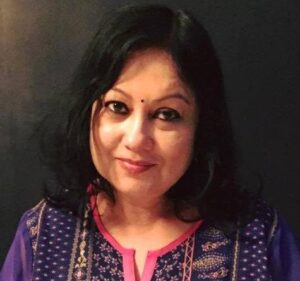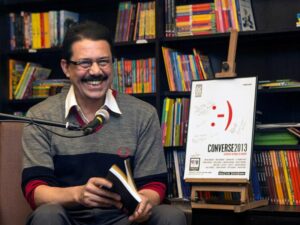Underlying in the diverse land of India’s Northeast, a growing number of visionaries are weaving new narratives of cultural pride and economic empowerment. Among them, Shyamkanu Mahanta stands out as a pioneering entrepreneur and festival organizer whose initiatives have transformed how the region’s art, music, cuisine, and business potential are showcased on national and international stages. As the Managing Director of MMS Advisory Groups and the chief organizer behind flagship events such as the North East Festival in Delhi, Bangkok, and the Rongali Festival in Assam, Mahanta has built bridges between communities, traders, tourists, and policy-makers—fueling both cultural celebration and local entrepreneurship.
Early Life and Educational Foundations
Born and raised in Assam, Shyamkanu Mahanta’s formative years instilled in him a deep appreciation for the region’s diverse heritage. Although details of his early schooling remain private, Mahanta went on to complete an engineering degree followed by an MBA—credentials that equipped him with both technical acumen and strategic business insight. This dual background laid the groundwork for his later endeavours in project finance and large-scale event management citeturn0search2. By combining analytical rigor with creative vision, he would soon identify cultural festivals as untapped vehicles for regional development.
From Project Finance to Cultural Entrepreneurship
Mahanta began his professional journey in project finance, working across India on infrastructure and development projects. This period honed his skills in stakeholder management, budgeting, and logistical planning—capabilities that would prove invaluable when organizing multi-venue festivals. Yet, even as he navigated boardrooms and balance sheets, Mahanta remained drawn to Assam’s festivals and art forms, recognizing their power to galvanize communities and generate economic opportunity.
Around 2013, Mahanta made the decisive shift from finance to cultural entrepreneurship. Founding Trend MMS (later rebranded as MMS Advisory Groups), he set out to professionalize festival organization in the Northeast, marrying local authenticity with global event standards. His philosophy was simple yet profound: elevate the region’s offerings so they resonate equally with local attendees, national tourists, and international audiences.
The Inception of the North East Festival
In 2013, Mahanta launched the North East Festival in Delhi—a three-day extravaganza aimed at introducing the capital’s populace to the Northeast’s cultural mosaic. From fashion and crafts to music and gastronomy, the event provided a comprehensive showcase of eight states and over 200 communities under one roof citeturn1search6. Supported by entities such as the Ministry of DoNER and various central and state governments, the festival quickly became a staple on Delhi’s events calendar, attracting tens of thousands of visitors annually.
Key highlights of the North East Festival include:
- MSME and Handicraft Pavilion: Featuring stalls from local artisans, weavers, and agriculturists, this pavilion spotlights traditional handlooms, bamboo crafts, and organic produce.
- Culinary Corridor: With around 60 food stalls, attendees sample authentic delicacies—Assam tea, Nagaland coffee, fermented cuisines, and tribal specialties—fostering cross-cultural culinary exchange.
- Art and Photography Zone: A curated gallery displays paintings, sculptures, and photography that capture Northeastern landscapes and lifestyles.
- Fashion Weekend: Sixteen designers present runway shows blending tribal motifs with contemporary silhouettes, celebrating the region’s textile heritage.
- Music and Dance Stage: From folk ensembles performing Bihu and Manipuri dances to modern rock bands and hip-hop artists, this stage pulsates with diverse rhythms.
- Tourism Business Meet: B2B sessions connect tour operators, hospitality providers, and government bodies to strategize sustainable tourism growth for destinations like Dzukou Valley and Neer Mahal.
By packaging culture, commerce, and tourism under a single banner, Mahanta positioned the North East Festival as both a marketplace and a celebration—one that champions community pride and economic opportunity in equal measure.
Expanding the Footprint: Bangkok, Guwahati, and Beyond
Encouraged by the Delhi edition’s success, Mahanta and his team extended the North East Festival brand to Bangkok, bringing Assam’s rice, silk, and tribal performances to international audiences. Back home, they deepened local engagement by hosting the festival in Guwahati—Assam’s commercial hub—thereby driving footfall and investment in the state’s hospitality and crafts sectors.
Parallel to these efforts, Mahanta took charge of Assam’s Rongali Festival, serving as chief organizer for its eighth edition in June 2024. The event attracted over 100,000 attendees, transforming Guwahati’s Khanapara grounds into a bustling marketplace and concert arena citeturn0search3. Highlights included:
- Entrepreneurship Awards: Recognizing local startups and artisans, with categories spanning media, entertainment, and agritech.
- Folk Heritage Stage: Showcasing more than a dozen indigenous tribes—Bodo, Karbi, Mising, Dimasa, and others—in music and dance performances.
- Fashion and Lifestyle Weekend: Designers presented capsule collections inspired by Assamese textiles.
- Culinary Festival: Featuring stalls from local entrepreneurs, these outlets recorded brisk business and introduced new fusion concepts.
Under Mahanta’s stewardship, Rongali evolved from a cultural fete to a “community movement,” empowering youth participation and elevating Assam’s creative economy in equal measure.
Impact on Local Entrepreneurship and Community Development
By channeling proceeds and publicity into regional MSMEs, Mahanta’s festivals have galvanized local supply chains—from bamboo artisans in Dima Hasao to tea growers in Jorhat. His emphasis on B2B networking ensures that stallholders not only sell to consumers but also forge partnerships with distributors, restaurateurs, and exporters. Through mentorship sessions and capacity-building workshops, first-time entrepreneurs learn branding, pricing, and digital marketing—skills critical for scaling operations beyond village boundaries.
Moreover, Mahanta prioritizes inclusive representation: women-led cooperatives, LGBTQ+ artists, and differently-abled performers find prominent platforms. This ethos of diversity strengthens social cohesion, fostering pride in indigenous identities while promoting an entrepreneurial mindset across demographics.
Challenges and Resilience
Orchestrating large-scale, multi-venue festivals comes with logistical and financial hurdles. Key challenges have included:
- Regulatory Approvals: Securing permissions from municipal bodies, police, and environmental agencies requires meticulous planning and advocacy.
- Sponsorship and Funding: Convincing corporate sponsors to invest in cultural events—especially those centered on a relatively niche region—demands compelling ROI projections and proven footfall metrics.
- Infrastructure Constraints: Ensuring adequate sanitation, healthcare, and accessibility at festival sites necessitates collaboration with local administrations.
Yet, through agile project management and consistent stakeholder engagement, Mahanta has navigated these obstacles. His skill in project finance enables prudent budgeting, while his relationships with government ministries facilitate smoother approvals. When the COVID-19 pandemic threatened live events, Mahanta pivoted to hybrid formats and smaller pop-up experiences—demonstrating adaptability in uncertain times.
Recognition and Awards
Mahanta’s contributions have earned him accolades within and beyond Assam:
- Featured speaker at national tourism conclaves and cultural forums.
- Honored by the Ministry of Tourism for promoting Northeast India as a destination.
- Awarded “Best Festival Organizer” by regional business chambers.
- Invited by international cultural institutions in Southeast Asia to share best practices in community-driven events.
These recognitions underscore his role not only as an event manager but as a thought leader in cultural entrepreneurship.
The Road Ahead: Digital Integration and Sustainable Growth
Looking forward, Shyamkanu Mahanta envisions:
- Digital Engagement: Launching a year-round online platform for artisans to showcase products, backed by virtual reality tours of festival venues.
- Green Initiatives: Transitioning to biodegradable materials, solar-powered lighting, and zero-waste food courts to minimize environmental footprints.
- Global Collaborations: Partnering with diaspora communities and international cultural bodies to co-create editions in Europe and North America.
- Skill Development Hubs: Establishing training centers in Assam to cultivate event management, hospitality, and digital marketing talent among youth.
By integrating technology and sustainability, Mahanta aims to future-proof the North East Festival brand and amplify its socio-economic impact.
Conclusion
From his roots in Assam’s heartlands to steering festivals that captivate capital-city crowds and international audiences, Shyamkanu Mahanta exemplifies how cultural dialogue and entrepreneurship can go hand-in-hand. Through the North East Festival and Rongali festivities, he has not only celebrated the region’s rich heritage but also unlocked avenues for artisans, startups, and young professionals to thrive. As his events continue to evolve—embracing digital innovation, environmental stewardship, and global outreach—Mahanta’s journey offers a compelling blueprint for leveraging culture as a catalyst for inclusive growth and cross-cultural understanding.






